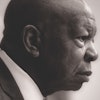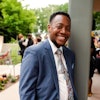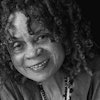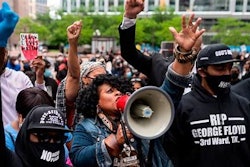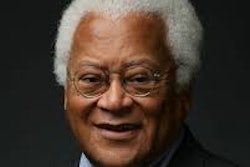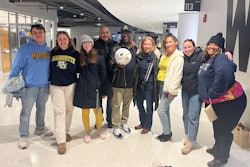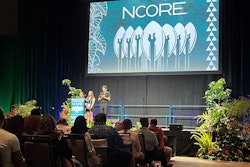Sixty years ago this weekend, an estimated 250,000 people gathered on the National Mall to demonstrate for the civil and economic rights of African Americans in the famed March on Washington. At the protest, which is credited with playing a role in the passage of the Civil Rights Act of 1964, Dr. Martin Luther King Jr. delivered his famous “I Have a Dream” speech.
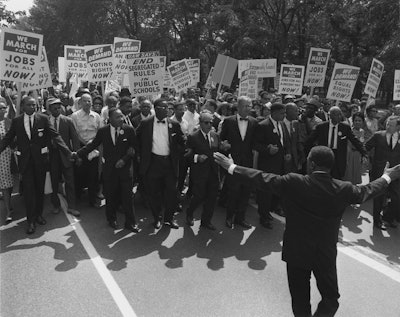 Civil Rights and union leaders, including Dr. Martin Luther King Jr., at the March on Washington on August 23, 1963
Civil Rights and union leaders, including Dr. Martin Luther King Jr., at the March on Washington on August 23, 1963
With this in mind, civil rights leaders have organized a new March on Washington for August 26th, under the banner “Not a Commemoration, A Continuation.” Much like the March 60 years ago, one of the key constituencies will be students.
Reverend Al Sharpton, president and founder of the National Action Network, the civil rights organization that is spearheading the new March, said that the participation of college students and young people is critically important given the recent assaults on affirmative action and the Supreme Court’s decision to reject student loan debt relief.
“They will live under these decisions longer than many of us convening the march,” said Sharpton, adding that the “erosion of voting rights” and restrictions on a woman’s right to choose should mobilize young people to vote their interest in the 2024 presidential election.
“Where has the reaction been to these assaults?” asked Sharpton, who added that the attacks on higher education have occurred over the last few months, prompting a greater need for a response. “There has been no collective action.”
Sharpton said that dozens of buses from colleges and universities from across the nation will be traveling to Washington, D.C. this weekend, and higher education leaders—including many college presidents—are planning to join their students.
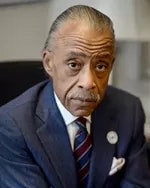 Reverend Al Sharpton, president and founder of the National Action Network, and organizer of the new March
Reverend Al Sharpton, president and founder of the National Action Network, and organizer of the new March
One of those students will be Justin Parker, a junior at Texas State University. He just transferred to the school, and under normal circumstances would spend next weekend settling in and attending welcome events. Instead, he will be marching.
“I do not mind it at all,” he said. “Fighting for freedom, equality, and justice in our communities is really more important.”
In his role as National Council Chair for the College Democrats of America, Parker has helped to organize ten buses with at least 50 students each to go to the March. He said that the response among his peers has been enthusiastic.
Parker, whose family steeped him in Black history growing up, is excited, too.
“Having this experience of really being able to be in the same space and atmosphere as Reverend Al Sharpton and the King family is not even an experience that you could dream of,” he said.
However, Deyona Burton, a senior at Florida State University and organizer with the National Action Network who has arranged for between four hundred and five hundred students from the Southeast to attend, found that she had to do a little bit of explanation.
“For the younger people, the March on Washington didn’t necessarily ring a bell,” she said. “I had to connect it to the ‘I Have a Dream’ speech. They were a little shocked that it’s happening again, [that] we’re continuing the fight.”
Once she explained, however, students were highly interested in marching.
“Everybody was excited,” she said. “Most people were down to do it, and if they can’t go, it’s mostly because of work or a prior commitment.”
Parker and Burton agreed that the youth are central to the coming political battles.
“If not us, then who will do it?” said Parker.
“Being college students, the foundations of our future are being decided right now,” said Burton. “If this is the environment that I have, then I’m not particularly happy with my options.”
Parker wants the March to serve as a statement that young people will not be ignored.
“I hope the March really shows elected officials across the country that the youth is more powerful than anything,” he said. “When they continue to target our communities, [we] will be a force to be reckoned with. We will be there to make our voices heard. We will be there to make our presence known.”
Burton said that seeing Black students from all across the country organize gave her hope.
“The speeches will be more like sermons. The applause will be more like thunder,” she said. “I’m really, really excited for everything to finally come together.”
Jon Edelman can be reached at [email protected]

